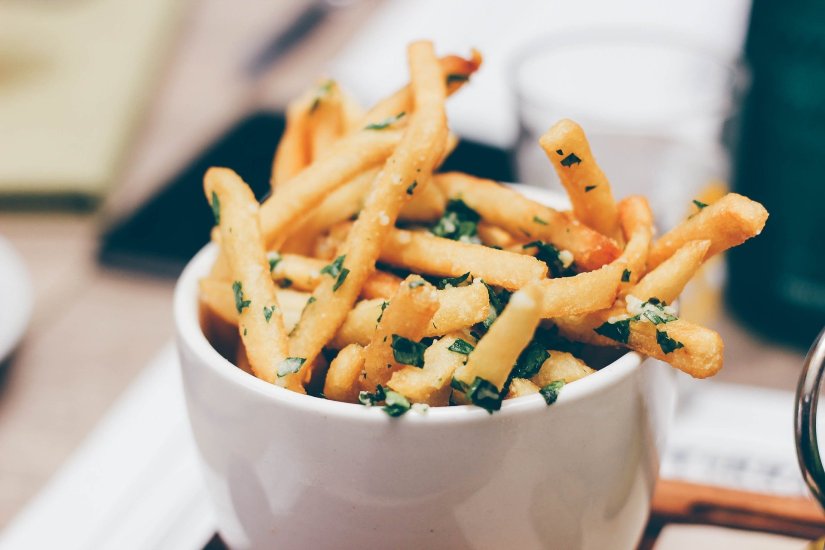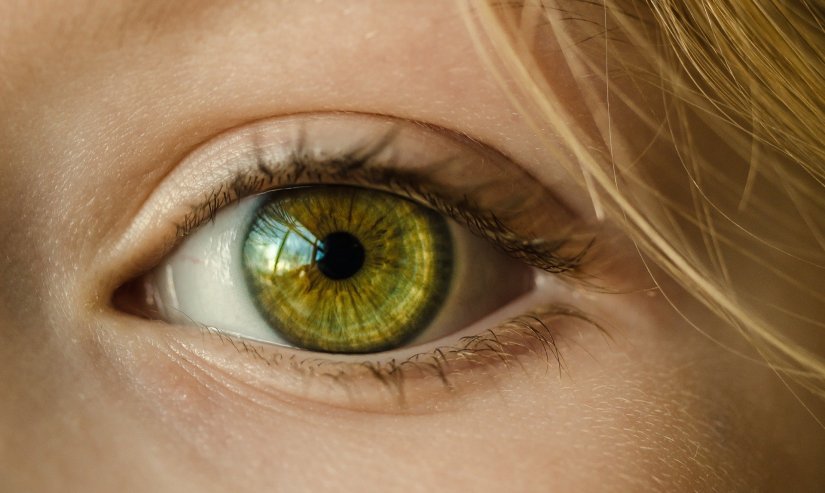Taste. Smell. Sight. Hearing. Touch. These are our five senses and they help us to make sense of the world. As we age, each of these senses can become dulled. However, certain bad habits and lifestyle choices can cause us to lose our senses more rapidly.
One surprising factor that can lead to sensory loss is a poor diet. Certain foods can damage our senses if we eat too much of them while others can damage our senses if we don’t get enough of them. Here are a few examples of how each sense can be affected by our diet.
Taste…
Unhealthy foods are often engineered to taste good. The problem is that they taste too good – and this can make healthy food taste bland by comparison.
Sugary processed foods are particularly bad for this and they can actually dull our sense of taste over time. Foods that are naturally sweet such as fruit can even end up tasting non-sweet – the copious amounts of added sugar found in processed foods causes our taste buds to become desensitised. Overconsumption of sugar may eventually lead to diabetes. At this stage, some people report not being able to taste anything sweet.
A lack of taste may also be caused by deficiencies of certain nutrients such as vitamin b12 and zinc. Vitamin B12 is found in meats, fish, eggs, dairy, and some fortified cereals, while zinc is present in dark chocolate, seafood, almonds, and cashews. Such deficiencies could be due to a poor diet or could be due to other health problems.
What else can affect our taste…
A loss of taste can also occur due to bad habits like smoking as well as poor dental hygiene. Sinus infections and acid reflux can also lead to a lack of taste. A metallic taste meanwhile could be a result of diabetes, kidney problems, or liver problems. It’s best to always talk to a doctor if you experience unexplained loss of taste to check that it isn’t anything serious.

Smell…
Our sense of smell is strongly linked to our smell of taste and so can be affected in many of the same ways. For instance, vitamin B12 deficiency can also cause a loss of smell.
Research shows that a high-fat diet may also lead to anosmia (loss of smell). This could be an extra reason to cut down on foods that are high in unhealthy fats such as fried foods, cakes, cookies, and pastries.
What else can affect our smell…
Just as smoking can damage our taste, it can also damage our sense of smell. Regular exposure to certain chemicals such as solvents and insecticides has also been linked to loss of smell, causing damage to nerves in the nose. Most people experience loss of smell when they have a cold, but this is usually temporary. Sinus infections and nasal growths may cause more long-term loss of smell – in such cases, it’s worth talking to a doctor. Unusual smells like burnt toast can also be a sign of a stroke.
Sight...
Overconsumption of fat and sugar is also bad for our eyes. Studies have found that people who eat a diet high in red meat, processed meat, fried food, refined grains, and high-fat dairy are more likely to suffer from macular degeneration. Such a diet can also increase the risk of diabetes, which if left untreated can cause diabetic retinopathy. Both conditions can lead to permanent vision loss. Cutting down on fat and sugar could prevent, or at the very least delay, these conditions.
It’s worth also making sure that your diet contains foods that are good for eye health, as these foods can help keep our vision sharp and ward of eye diseases. Foods containing high amounts of omega-3 such as walnuts, flax seeds, and fish are great for our eyes. Vitamin A meanwhile is another vital nutrient – this is found in eggs, cod liver oil, and spinach. Carrots are also rich in vitamin A and are excellent for eye health (they may not necessarily make you see in the dark, but could make your vision stronger).
What else can affect our sight…
Exposure to unhealthy sources of light is the biggest cause of vision loss. Prolonged exposure to sunlight can increase the risk of cataracts, while prolonged exposure to blue light is strongly believed to cause retina damage. By wearing shades on a sunny day and using software/apps to reduce blue light, you can minimize any damage to your eyes. Prescription glasses can restore vision in many instances – if you need glasses, you can shop for pairs at sites like https://www.eyeglasses.com/. Contact lenses and laser eye treatment may be other options to consider.
Hearing…
Our diet can also have an impact on our hearing. The negative effects have been observed mainly in children: a study into nutrition and hearing found that malnourished kids were twice as likely to develop hearing loss as young adults than well-nourished kids.
The nutrients that are important for hearing include zinc, magnesium, and folic acid. Dark leafy greens such as spinach are a rich source of all three of these nutrients. Other foods that are good for our ears include mushrooms, cashews, almonds, dark chocolate, and broccoli.
What else can affect our hearing…
Premature hearing loss is commonly triggered by exposure to loud noise. When in loud environments, it’s worth always wearing ear protection such as earplugs to protect your ears from damage (this could include musical concerts or motorsports events). Other causes of hearing loss may include infections and ear wax build-up – most of which is temporary and can be treated by taking antibiotics or having your ears professionally cleaned. A hearing aid is recommended for those with permanent hearing loss – you can learn more about hearing aids at sites like https://www.healthyhearing.com/. Hearing aids are also available for people that suffer from tinnitus (a condition that causes people to hear sounds that aren’t there such as ringing and buzzing).
Touch…
A poor diet may even lead to loss of touch. A condition known as neuropathy can result in numbness in the hands and feet. It can develop as a symptom of diabetes (brought on by consuming too much fat and sugar) or by years of heavy drinking. By cutting down on fat and sugar and by drinking alcohol in moderation, you can reduce the chance of developing these types of neuropathy.
You may also be able to prevent loss of touch by making sure that you’re getting your fix of certain nutrients. Leafy greens are good for the nerves due to high levels of vitamin B, vitamin C, vitamin E, and magnesium. It’s also important to get your fix of calcium as a deficiency can cause neuropathy in certain cases – dairy, fish, and soya are good sources of calcium.
What else can affect our sense of touch…
Beyond a poor diet, loss of touch may occur as a result of injuries such as cuts and burns. For instance, burning your hand on an oven tray could be enough to damage nerves and lose some feeling. A number of diseases such as multiple sclerosis and decompression sickness can also cause loss of touch. If you notice that you have lost your sense of touch in a particular area of your body, it’s worth talking to a doctor to diagnose the problem. You can read up on more causes of neuropathy here at https://www.mayoclinic.org.




This is such an interesting post Bar. It’s amazing what a difference a healthy diet can make, and what a negative impact an unhealthy one can have.
LikeLike
Thanks Terri x
LikeLiked by 1 person
Thanks Terri x
LikeLike